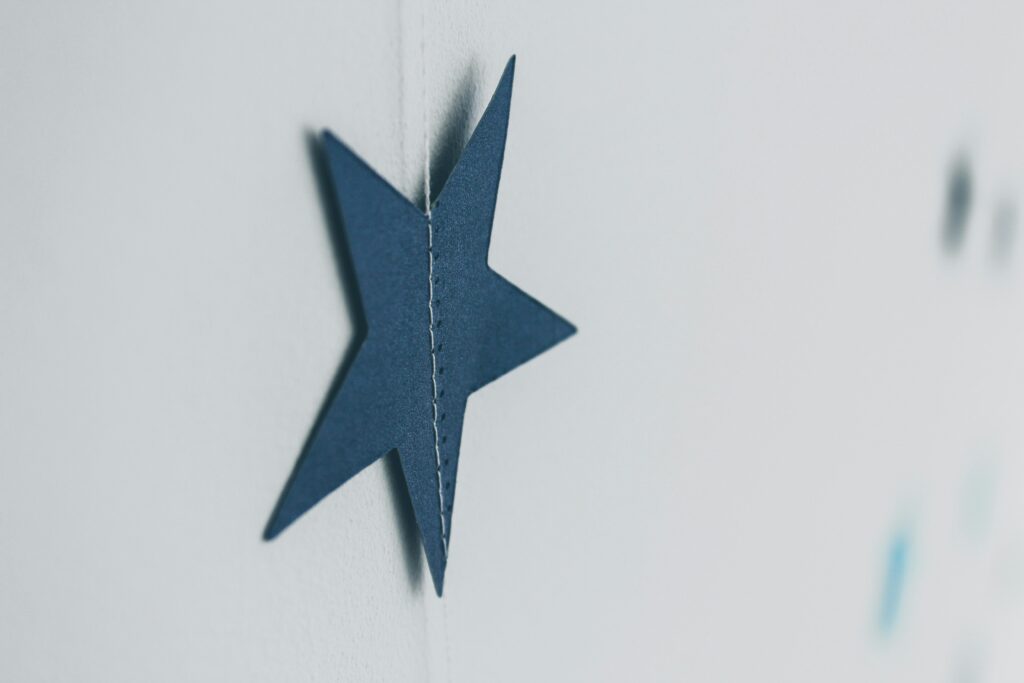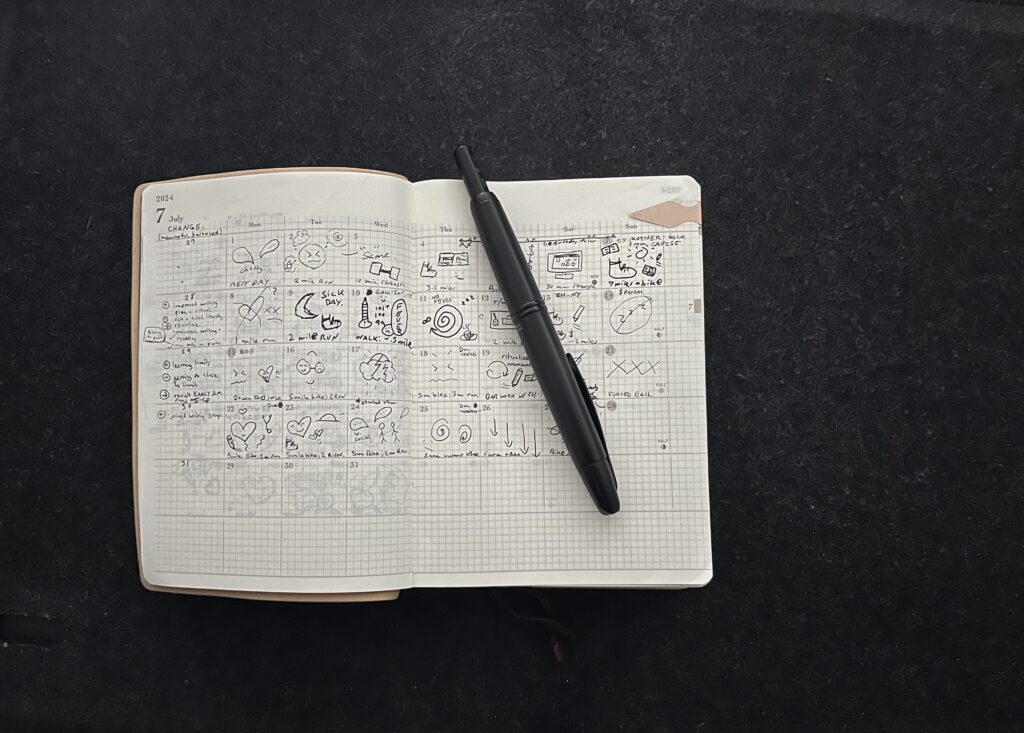
Over the past week, I was told my writing was “bizarre” and “generic.” Admittedly, those comments felt a bit insulting. These were from two independent sources and two separate writing projects in completely different areas of my life, one professional and one personal. Despite this feedback, I’m still writing.
Sometimes I think I identify too strongly with the title, “writer.” In Heather Clark’s book on Sylvia Plath’s work, Red Comet , the opening line is “…everyday, one has to earn the name of “writer” over again, with much wrestling.”
I’m not sure it should feel so difficult. Austin Kleon argues the nouns, writer, artist, or creator, if you like, shouldn’t matter. Instead, we should practice the verbs. These practices are built on daily processes, and they help me return to my creative pursuits and other habits. About that sentiment, I agree with Sylvia Plath — I try to maintain a daily practice of creative expression, of intentional reflection, even if it’s just journaling.
Without regular reflection, I think I would struggle more with writing. Written communication is a key aspect of my personal and professional responsibilities. I write to communicate new ideas; document life events; and support myself.

The act of writing feels fulfilling. It’s an imaginative process that sometimes seems magical. Many people manage personal blogs and write books in their free time. I am one of those people who writes when I have free moments and sets aside protected time to focus on my writing.
Academic research also comes with writing responsibilities. Academic writing, for me, is more laborious than writing blogs and book drafts (although similarly fun). It typically requires reading, understanding, statistical analysis, and connecting literature from many sources. Academic writing involves teamwork and multiple rounds of editing and revision.
In personal and professional writing, I’m trying to shift my focus to the processes, not only the outcomes. For example, one of my goals for personal writing has been to publish one blog each month. That’s an outcome-based goal, and I often unintentionally raise that standard to three blogs each month, which is difficult for me even during a good month. My professional goals are to publish two academic papers each year. Although that goal is reasonable, and I’ve just reached it for 2024, it’s also outcome-based. While outcome-based goals are important for most careers, they’re overrated.
If we pay too much attention to quantifiable goals, we may lose enjoyment of the processes. I can quantify the reach of my personal writing and academic publications with metrics like comments and citations, respectively, but I also want to rediscover the fun of my writing process, including reading, mind-mapping, note-taking, and collaborative meetings. When I was a first-year graduate student, I distinctly remember spreading out printed academic journal articles on the tables in my department building to better understand aging, sleep, and memory. I could read for hours and bask in this state of questioning, understanding, connecting, and discovery. My writing processes, both personal and professional, are a major aspect of the enjoyment I get from writing. I don’t want that enjoyment to be overshadowed by writing outcomes.
Without specific intentions in mind to enjoy my writing processes, this is all just noise. I will share a couple practical intentions I plan to use for my writing process below.
- Become more comfortable with my writing. And this goal is also about feeling comfortable with myself as a human. I often feel hesitant about sharing my thoughts, and sharing them in a semi-permanent way, such as public blogs, can feel intimidating. Briefly, I will make a conscious effort to share my ideas with friends and family, colleagues, and writing groups. I want to build deeper connections through conversations from notes, reflections, and writing fragments.
- Give myself more time. Time has been feeling particularly scarce this year, but that probably just means I’ve overcommitted myself. Time blocking is a method that helps me prioritize time for writing while balancing my time for other responsibilities. I also want to shift toward more content-focused days or hourly periods. For example, I do my best personal writing on Sundays; my best professional writing on Tuesdays; and have my best runs during the quiet, early mornings. My intention is to give myself a bit more room for these core aspects of my life and have the mental space to allow my mind to wonder with little time-based stress.
Like the main character in Perfect Days, Hirayama, I want to see every day as a new opportunity. Whenever possible, I want to my maintain daily processes, my reflection and creative writing processes. Whether my writing comes across as “talented,” “bizarre,” or (the worse comment yet) “generic,” writing is the verb that helps me feel whole.
I will leave you with a writing quote I found comforting that I discovered on Elliot Chan’s YouTube channel.
“As things stand now, I am going to be a writer. I’m not sure that I’m going to be a good one or even a self-supporting one, but until the dark thumb of fate presses me to the dust and says ‘you are nothing’, I will be a writer.” – Hunter S. Thompson
July’s Writing Around the Web
This month, I wrote about associations between sleep and prospective memory, how sleep helps us remember to do what we intend to do.
- For a quick summary on this topic, read the post on Medium.
- If you want a deeper dive into the details and research studies on sleep and prospective memory, see the Substack post for a comprehensive discussion.
- For photos of analog, and sometimes digital, notes, see my IG. Note-taking in journals, notebooks, and books is how most of my writing starts.
Notes
- This YouTube video by ThatJournalingGuy has several creative ideas for using monthly calendars. As I show above, I’ve been doing a daily doodle in my monthly calendar.
- If you found value in this writing and want to say thanks, here are a few ways to support the blog:
- Chat with me directly and send feedback, questions, or article requests to emily.c.hokett@gmail.com.
- Find more of my writing on Substack, Medium and here at emilyhokett.blog.
- Buy me a tea🍵 to support the maintenance of the blog.
Take care. Talk soon.